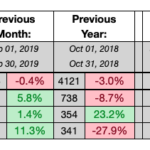The Court of Appeals for the Eleventh Circuit has reversed a lower court’s certification of a class-action in the Telephone Consumer Protection Act case, ruling that receiving a telemarketing call and not revoking consent to be contacted does not rise to the standard of a concrete injury under Article III of the Constitution.
A copy of the ruling in the case of Cordoba v. DirecTV LLC can be accessed by clicking here.
The plaintiff received a number of telemarketing calls from an agent of the defendant and revoked consent to be contacted. However, the agent of the defendant did not maintain an internal do not call list, which is a violation of the TCPA. The company just deleted names from the list when someone asked not to be contacted anymore. The plaintiff sued, alleging the defendant violated the TCPA and sought to certify two classes. One of the classes, which was what the Eleventh Circuit was dealing with in the appeal, included individuals who received more than one telemarketing call from the defendant’s agent on behalf of the defendant during which time the agent failed to adhere to the internal do-not-call list regulations under the TCPA.
The defendant argued that individuals who did not ask for the defendant to stop calling them lacked the standing to sue, an argument the Appeals Court agreed with.
But if an individual not on the National Do Not Call Registry was called by [the defendant’s agent] and never asked [the agent] not to call them again, it doesn’t make any difference that [the agent] hadn’t maintained an internal do-not-call list. [The agent] could and would have continued to call them even if it had meticulously followed the TCPA and the FCC regulations. For these individuals, then, their injury wouldn’t be “fairly traceable to the challenged action of the defendant.”









